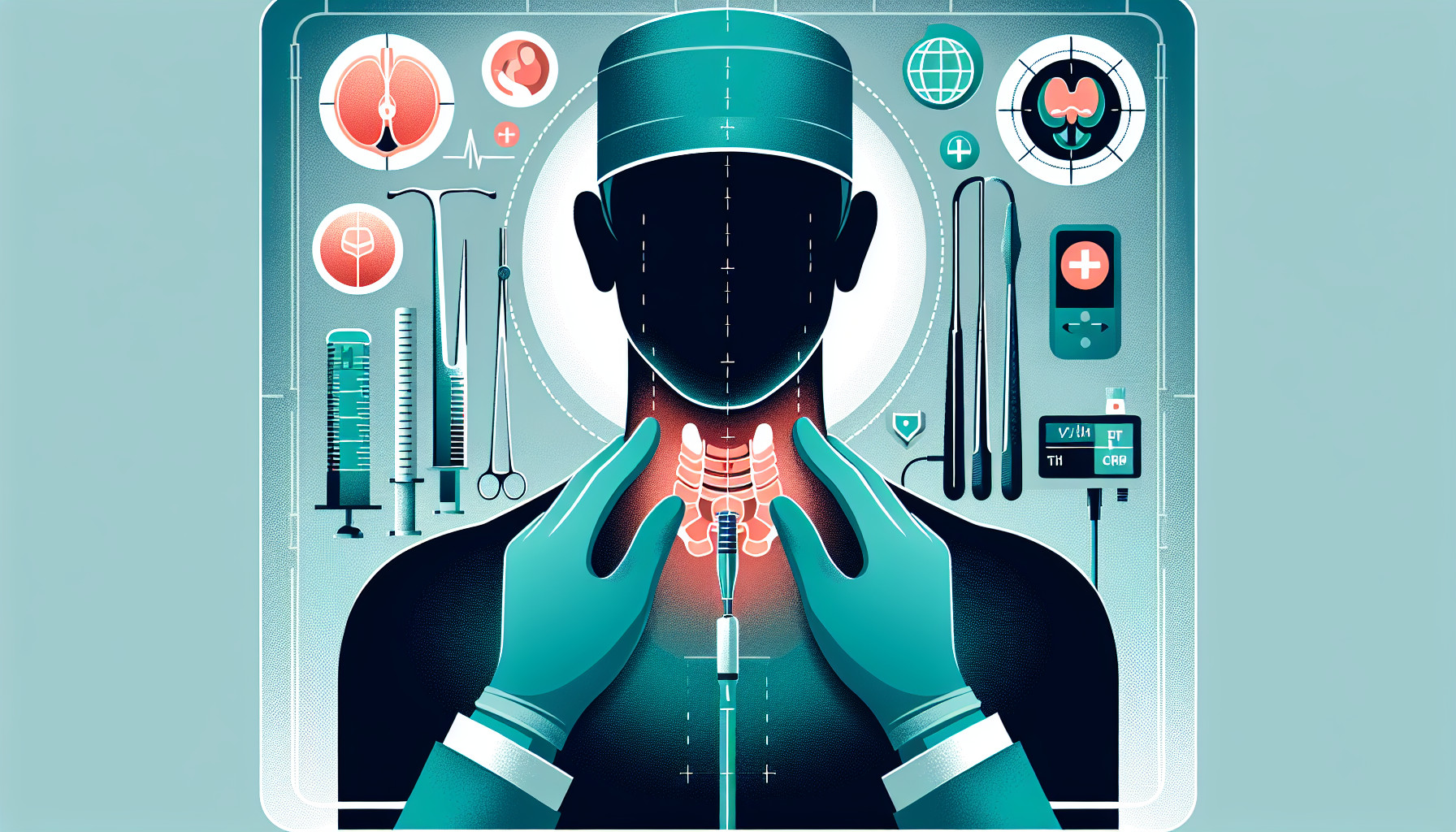Our Summary
This study looked at how safe it is to perform a parathyroidectomy (a surgery that removes parathyroid glands from the neck) on pregnant women who have hyperparathyroidism (a condition where the body produces too much parathyroid hormone). The researchers also compared the safety of this surgery to other treatments and studied if it’s safe to do this surgery in the third trimester of pregnancy.
The researchers analyzed 382 cases of pregnant women with hyperparathyroidism from 1980 to 2020. Out of these cases, 108 women underwent surgery while the rest received other treatments. Most surgeries were done in the second trimester of pregnancy.
The study found that complications or deaths were less likely to happen when the surgery was done in the second trimester compared to the third trimester. However, there were nine cases where the baby had complications or died, but these cases didn’t have any surgery-related complications.
Despite these complications, babies of women who had the surgery had fewer complications than those who had other treatments.
So, the researchers concluded that parathyroidectomy should be considered for all pregnant women with hyperparathyroidism, regardless of whether they have symptoms or not. The data suggests that this surgery is safer than other treatments and results in better outcomes for the baby. Surgery in the third trimester is also possible.
FAQs
- Is it safe to perform a parathyroidectomy on pregnant women with hyperparathyroidism?
- Does the timing of the surgery (second vs third trimester) affect the safety of the procedure or outcome for the baby?
- How does the safety and outcomes of a parathyroidectomy compare to other treatments for hyperparathyroidism in pregnant women?
Doctor’s Tip
One helpful tip a doctor might tell a patient about parathyroidectomy is to discuss the timing of the surgery in relation to pregnancy. It may be safer to undergo the surgery in the second trimester rather than the third trimester to reduce the risk of complications for both the mother and the baby. However, each case is unique and should be carefully evaluated by a healthcare provider to determine the best course of action.
Suitable For
Patients who are typically recommended for parathyroidectomy include those with primary hyperparathyroidism who have symptoms such as kidney stones, osteoporosis, or high levels of calcium in the blood. Pregnant women with hyperparathyroidism may also be recommended for this surgery, especially if they are in their second trimester and experiencing complications related to the condition. The study mentioned above suggests that parathyroidectomy is a safe and effective treatment option for pregnant women with hyperparathyroidism.
Timeline
Before parathyroidectomy:
- Patient is diagnosed with hyperparathyroidism, a condition where the body produces too much parathyroid hormone.
- Patient may experience symptoms such as fatigue, weakness, bone pain, kidney stones, and gastrointestinal issues.
- Patient undergoes various tests to confirm the diagnosis, including blood tests and imaging studies.
- Treatment options are discussed, including surgery, medication, and lifestyle changes.
After parathyroidectomy:
- Patient undergoes surgery to remove the parathyroid glands from the neck.
- Recovery time varies, but most patients can return to normal activities within a few weeks.
- Patient may need to take calcium and vitamin D supplements to prevent hypocalcemia (low calcium levels).
- Follow-up appointments are scheduled to monitor calcium levels and overall health.
- Patient may experience improvement in symptoms such as fatigue, weakness, and bone pain.
- Long-term monitoring is necessary to ensure the hyperparathyroidism does not return.
What to Ask Your Doctor
- What are the risks and benefits of undergoing a parathyroidectomy during pregnancy for my specific case?
- How will the surgery be performed and what is the recovery process like for pregnant women?
- Will the surgery have any impact on my baby’s health or development?
- Are there alternative treatments or medications that I can consider instead of surgery?
- How experienced is the surgical team in performing parathyroidectomies on pregnant women?
- What precautions will be taken during the surgery to ensure the safety of both me and my baby?
- How will my hormone levels be monitored before and after the surgery?
- What are the potential long-term effects of undergoing a parathyroidectomy during pregnancy?
- Are there any specific dietary or lifestyle changes I should make before or after the surgery?
- What follow-up care will be required after the surgery, and how will it impact my pregnancy and overall health?
Reference
Authors: Sandler ML, Ho R, Xing MH, Gidumal S, Spitzer H, Levy JC, Chai RL. Journal: Laryngoscope. 2021 Aug;131(8):1915-1921. doi: 10.1002/lary.29489. Epub 2021 Mar 10. PMID: 33751589
